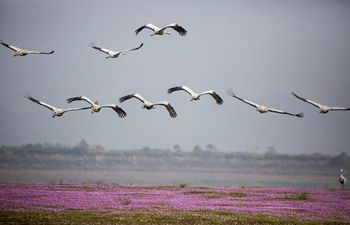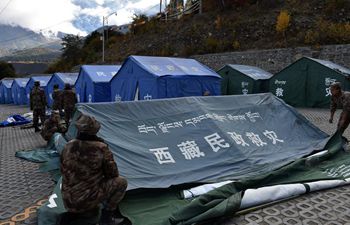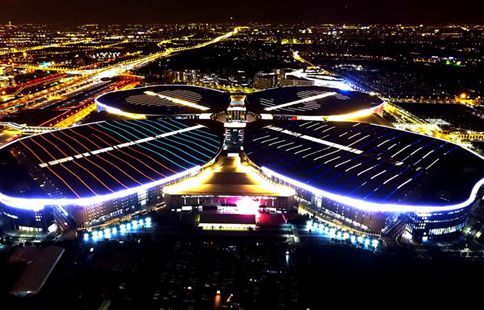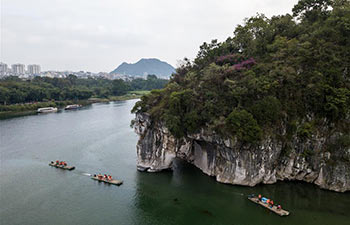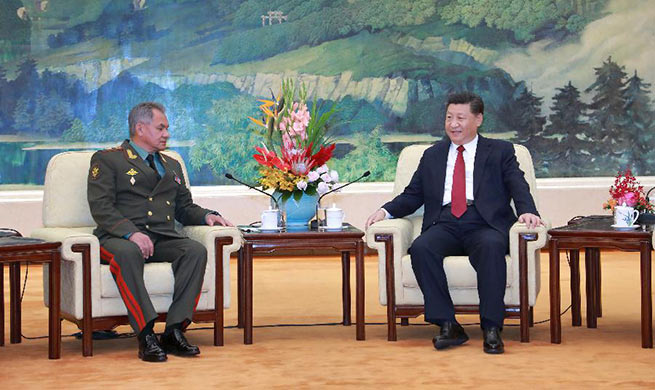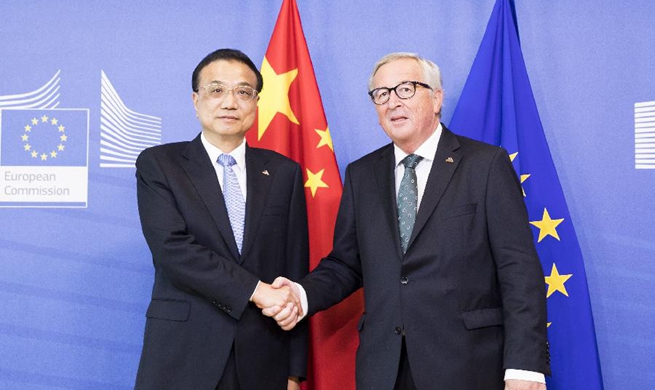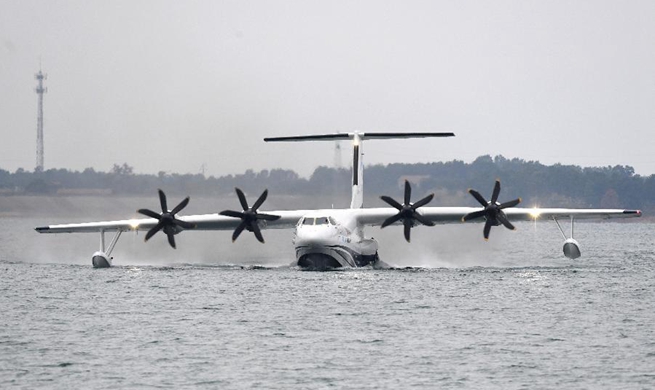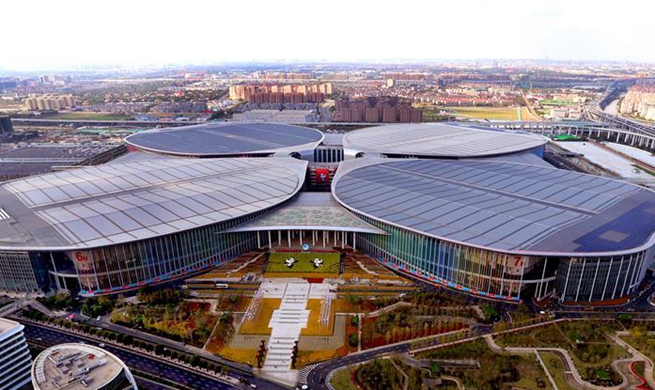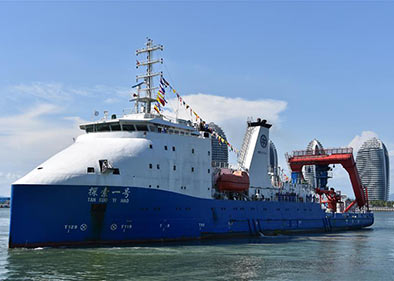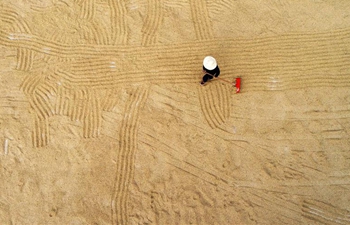DAMASCUS, Oct. 20 (Xinhua) -- "Cautious calm" prevailed the demilitarized zone in northern Syria on Saturday as the extremist groups have yet to withdraw despite Turkish efforts in accordance with a Russian-Turkish deal, a war monitor reported.
Calm is witnessed in the demilitarized zone on the sixth day since it went into force as part of a Russian-Turkish deal reached last month to create a buffer zone between the Syrian army and the rebels, according to the Syrian Observatory for Human Rights.
The Britain-based watchdog group said that some breaches were reported overnight in the northern countryside of Hama.
Meanwhile, the war monitor said that the extremist groups haven't pulled out from the zone as they were supposed to comply with the Russian-Turkish deal.
The Turkish intelligence apparatus have so far failed to persuade the rebels to leave the zone, according to the observatory.
In an earlier report, the observatory said the Turkish intelligence is continuing its "undeclared" efforts to push the ultra-radical groups out of the demilitarized zone in northern Syria, which should have been done by Oct. 15.
It said the Russian-Turkish deal to impose a buffer zone between the Syrian Army and the rebel groups in northern Syria has been partially implemented in terms of pulling out heavy weapons from the zone.
However, the second stage of the deal is for the ultra-radical rebel groups to withdraw, which did not happen as such groups, mainly al-Qaida-linked groups, have rejected to pull out.
The planned demilitarized zone includes areas in Idlib, which is the last major rebel stronghold in northwestern Syria, as well as adjacent countryside areas of the provinces of Hama, Latakia and Aleppo.
The Hayat Tahrir al-Sham, otherwise known as al-Qaida-linked Nusra Front, is considered as the most powerful among the rebel groups in Idlib province.
The deal for imposing a demilitarized zone was reached in September between the leaders of Turkey and Russia, aiming at averting Idlib province from a wide-scale offensive by the Syrian army.
The Syrian government has welcomed the deal but noted that it was only temporary.
Turkey's task in the deal is to persuade the rebel groups in Idlib to abide by the plan as Ankara enjoys sway over the militants there.
The observatory said that no Turkish-Russian patrols have yet started in the demilitarized zone as planned.
On Oct. 15, Syria's Foreign Minister Walid al-Muallem said that there should be more time to judge the success or failure of the deal and that the Syrian army is standing by around Idlib should the rebels fail to abide by the plan.
The Syrian government officials repeatedly said that the demilitarized zone should end after Idlib and the surrounding rebel-held areas return under the government control.
In his remarks, Muallem was confident that Idlib will return under the government control.
He added that the next goal of the Syrian government is to restore areas on the eastern bank of the Euphrates River, which is under the sway of the U.S.-backed Syrian Democratic Forces.
Throughout the crisis, Idlib has emerged as the major destination and stronghold of the Syrian rebels fleeing other parts of the country after deals or surrender.
Idlib is now in a state of severe lawlessness characterized by assassinations, explosions, and infighting.
The major rebel group in Idlib is the Nusra Front, which has vowed not to surrender, saying it will keep on fighting the Syrian army.
Idlib is of strategic significance as it shares a border area with Turkey in the north and neighbors the coastal province of Latakia, hometown of Syrian President Bashar al-Assad.
Notably, the namesake capital city of Idlib lies close to the international road linking the capital Damascus with the northern province of Aleppo.
Idlib is home to around 3.5 million people, including those who evacuated after the surrender of rebels in other Syrian areas.
Muallem said in his Monday remarks that the government prioritized resolving the situation in Idlib through reconciliation to spare the lives of people in Idlib.
However, the minister noted that the Syrian Army cannot stand indifferent about the situation in Idlib if it wasn't resolved as up to 50,000 rebels are believed to be positioned there.





